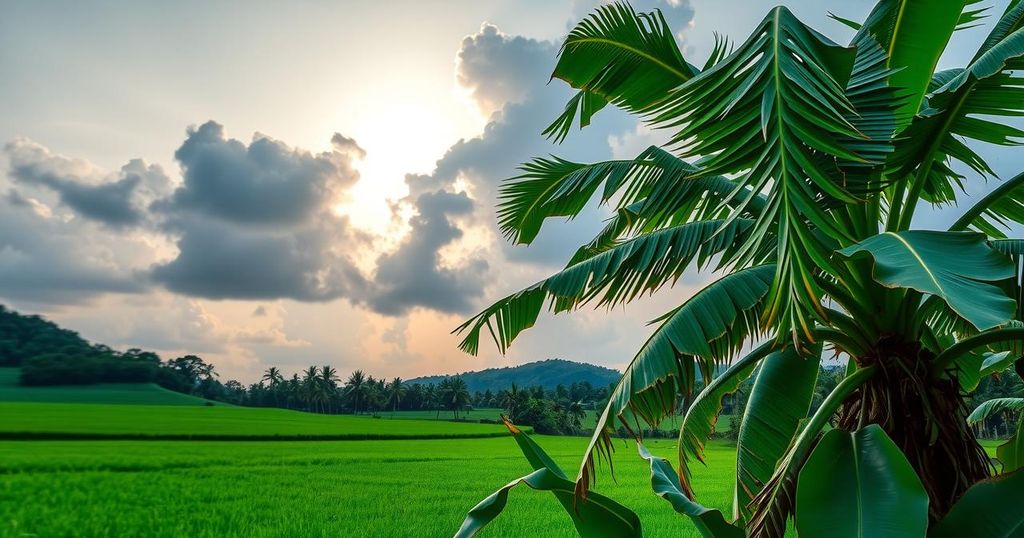Soaring Tropical Crop Prices Highlight Farmers’ Climate Challenges

Tropical crops such as coffee, cocoa, and rubber have seen substantial price increases recently; however, smallholder farmers face significant challenges due to adverse climate conditions. The concentration of production in vulnerable regions exacerbates these issues, as extreme weather disrupts supply. Ultimately, rising prices do not equate to increased benefits for those farming these crops, leaving them vulnerable and in poverty.
Tropical crop prices have surged significantly, with major gains in commodities like coffee, cocoa, rubber, and palm oil over the past months. While this price increase presents investment opportunities, it is not without consequences. Farmers, particularly smallholders in tropical regions, face immense challenges due to worsening climate conditions, which hinder their ability to capitalize on rising prices.
For instance, Brazil is experiencing its worst drought in decades, impacting coffee production and vast areas of rainforest and farmland. Similarly, extreme weather patterns across West Africa and Southeast Asia are causing detrimental effects on the yield and quality of cacao and rubber crops. These adverse weather effects highlight the increasing interconnectedness of global agricultural production, exacerbated by climate change.
Tropical crops, unlike those in temperate zones, are particularly sensitive to temperature changes. A study identified that by 2070, extreme heat will affect the viability of many tropical species, posing an existential threat to important crops like bananas and mangoes. This growing vulnerability underscores the precarious position of tropical agriculture due to climate change.
Compounding the issue is the prolonged nature of tree-crop cultivation, as these crops are not easily adjusted yearly, unlike annual crops such as soybeans. Moreover, smallholder farmers, who represent a majority of tropical crop producers, earn less than $2.15 per day, making it gravely difficult to invest in climate adaptation strategies.
Higher global commodity prices rarely benefit these smallholders, as much of the profit flows to larger corporations and traders in the supply chain. Thus, even amidst soaring prices, these farmers are often left impoverished, illustrating the disparities inherent in the agricultural system. The forecast indicates consumers will likely face higher prices for staple food products, affected by these growing challenges entrepreneurs face in tropical crop markets.
In summary, despite the significant price increases of tropical crops, smallholder farmers remain beset by climatic challenges that hinder their ability to benefit. Extreme weather events, driven by climate change, threaten global supply chains and adversely impact production outcomes. Furthermore, with a significant portion of the profits channeled away from farmers and toward larger corporations, the financial relief remains elusive. Upcoming commodity price stability may be elusive, with expectations of higher consumer costs for crops linked to the turbulent dynamics of climate impacts.
Original Source: www.biznews.com








